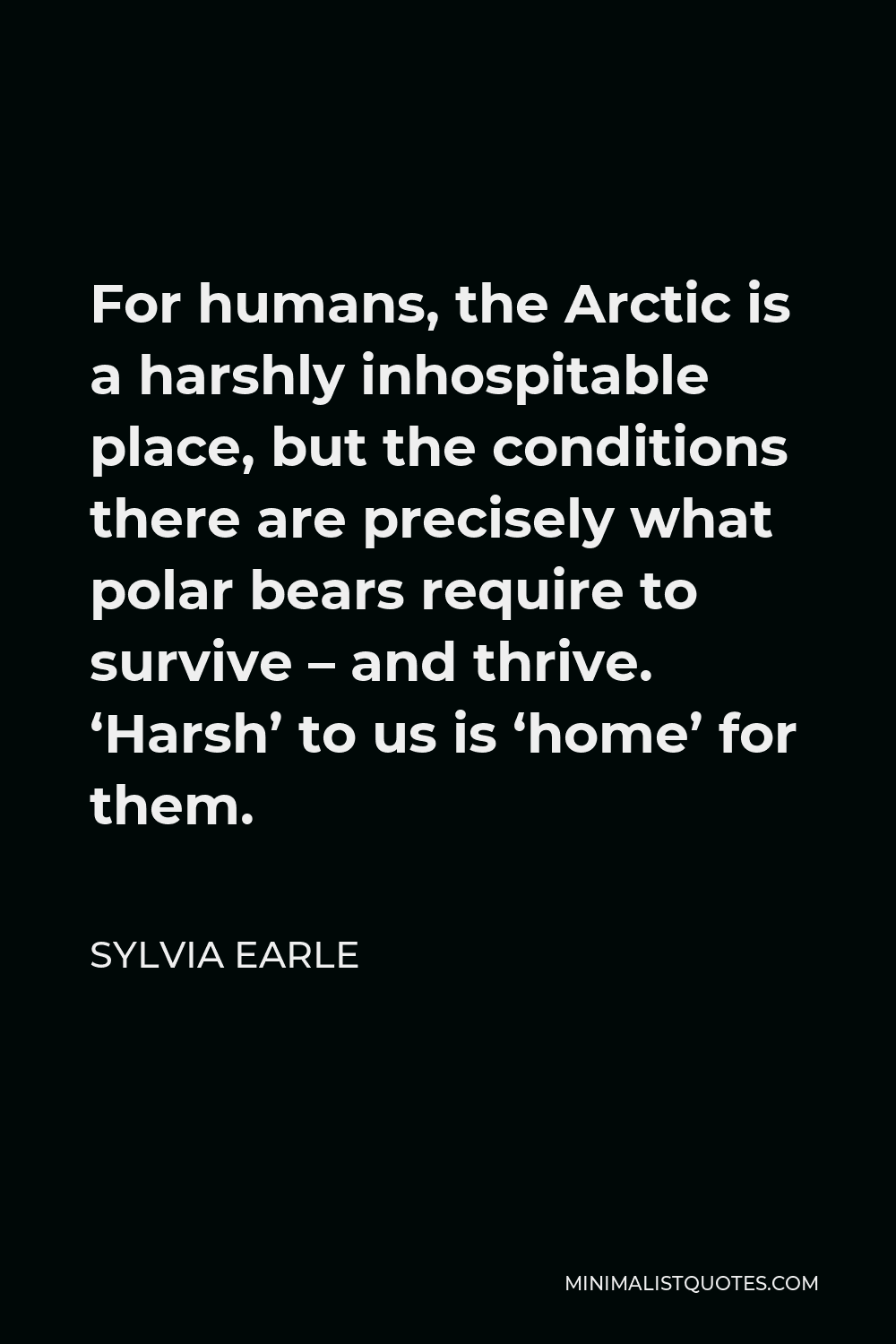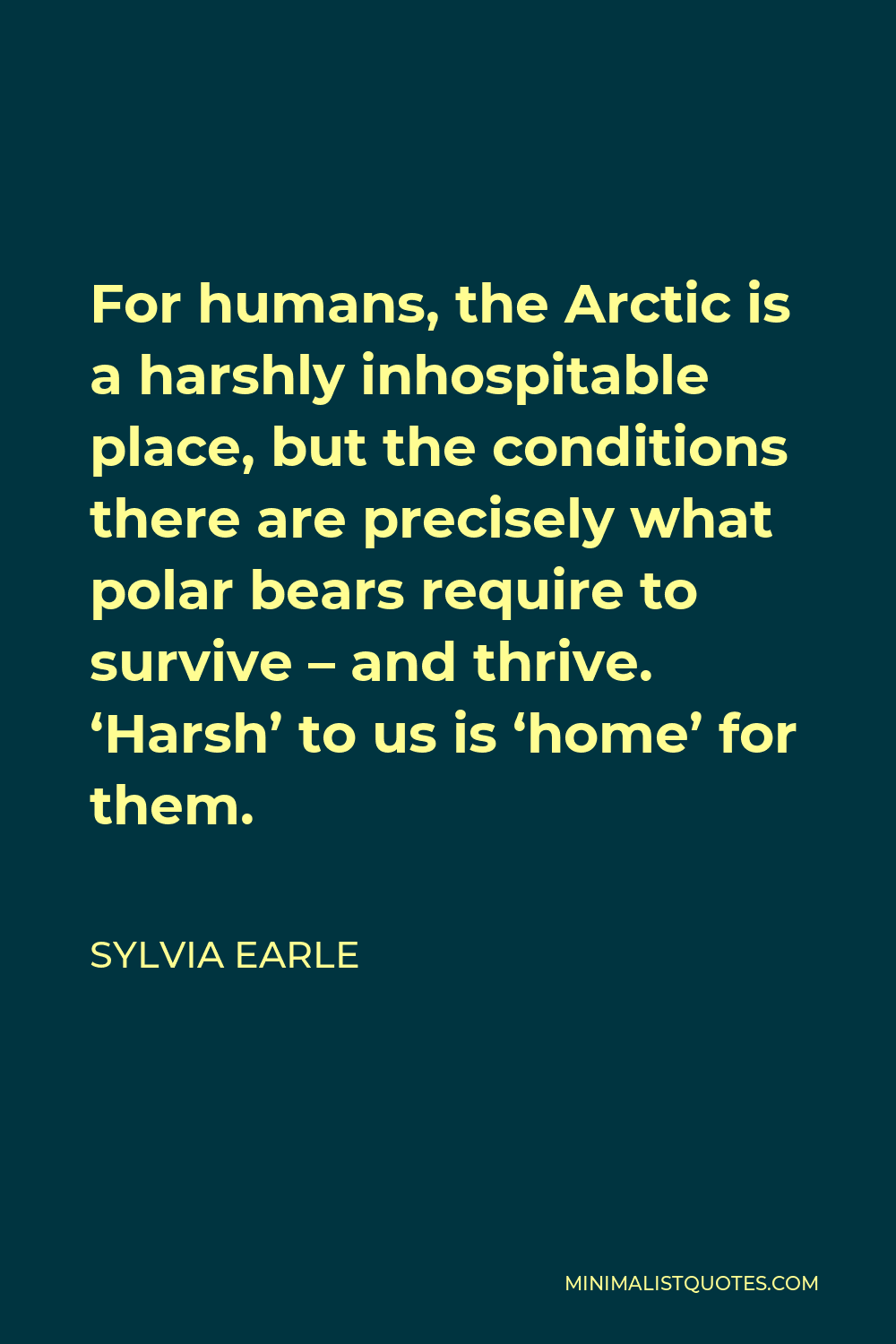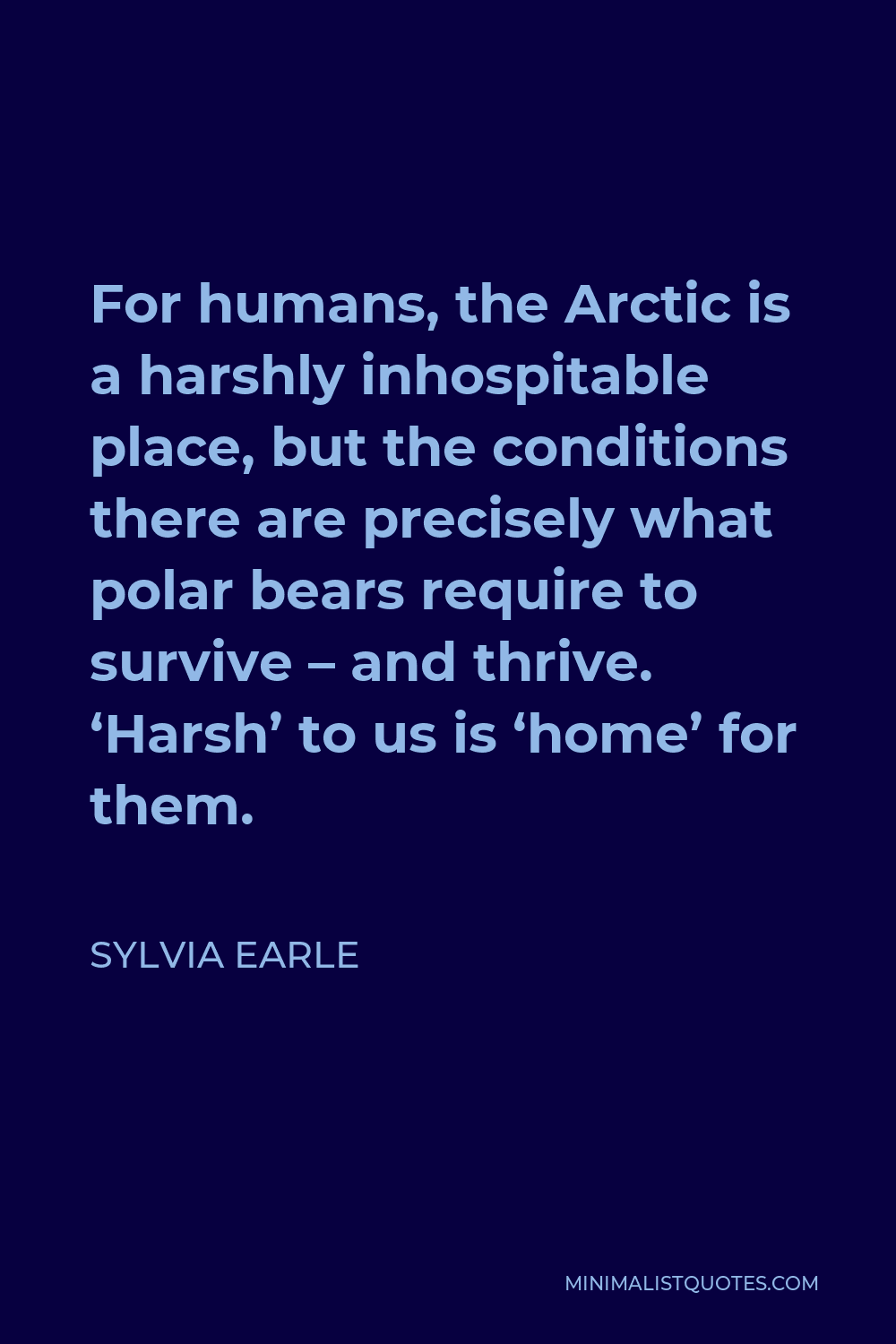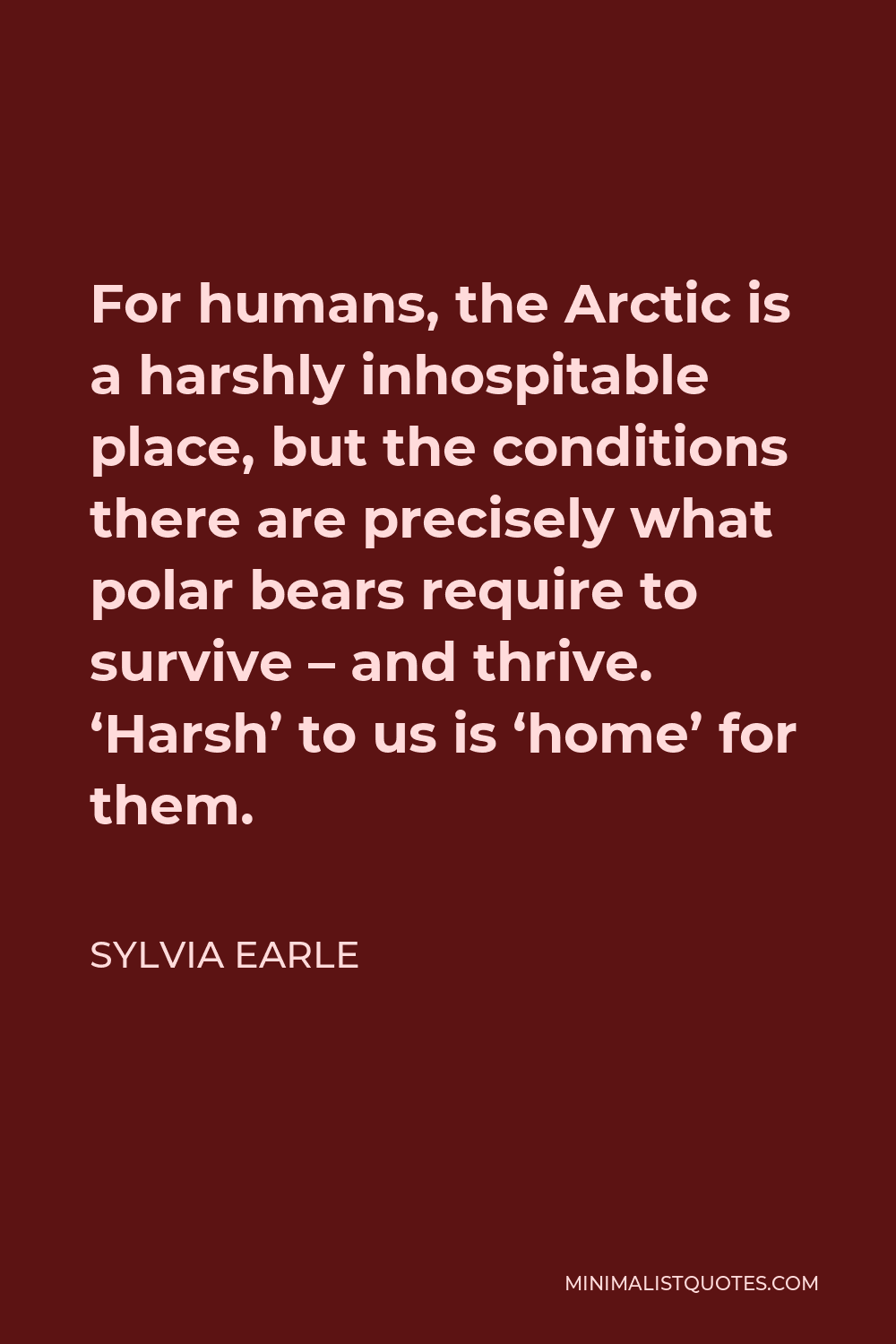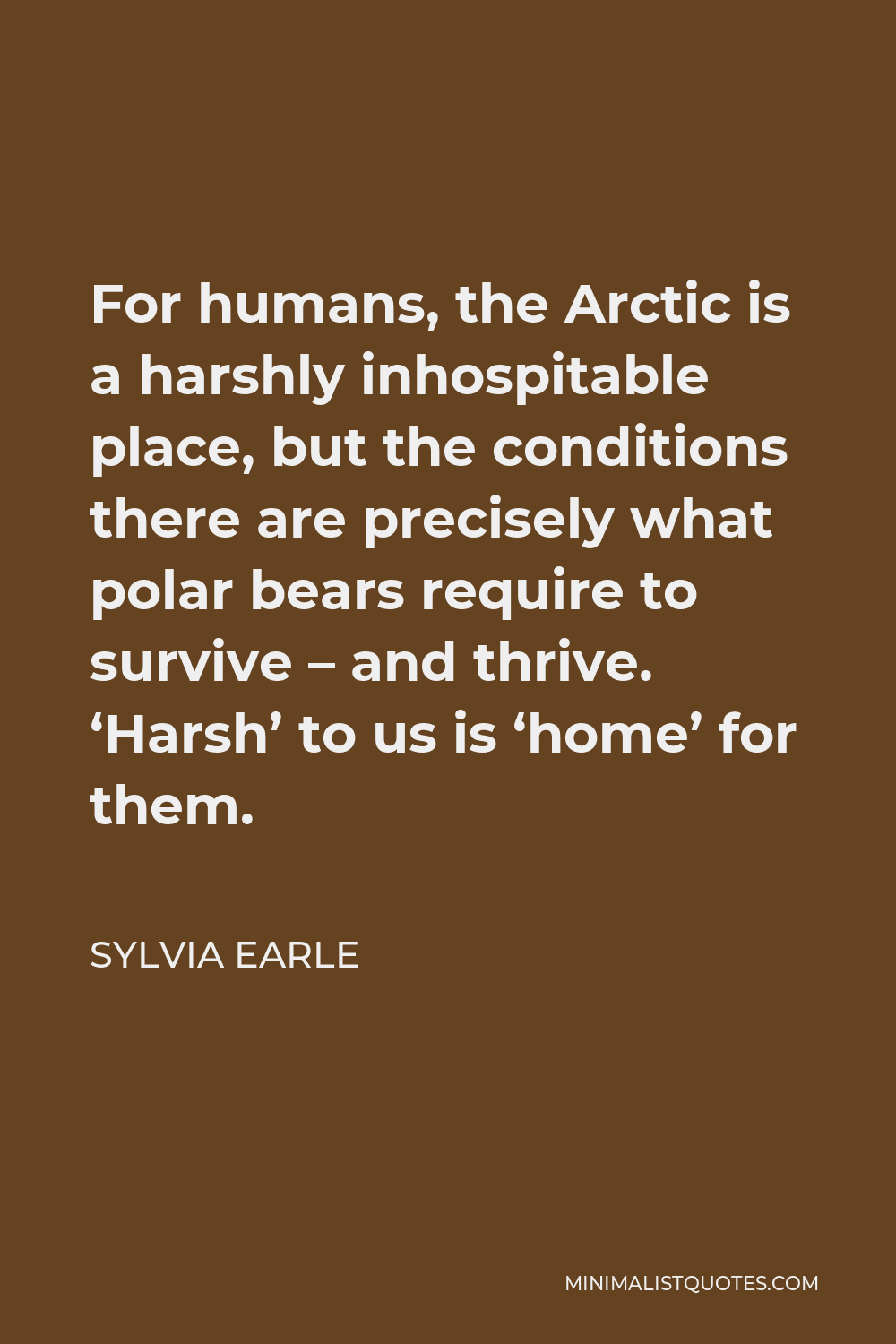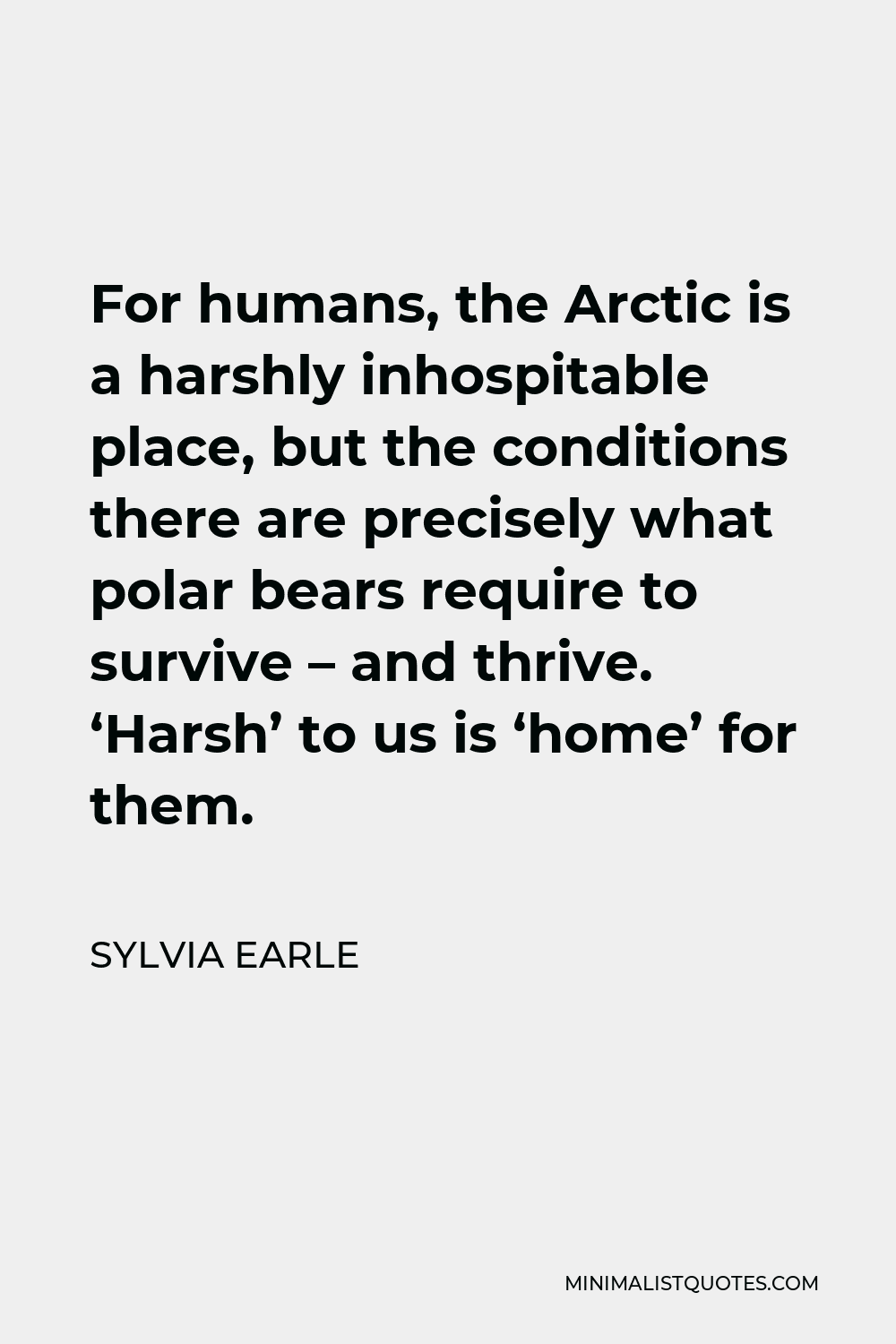Look at the bark of a redwood, and you see moss.
SYLVIA EARLEFor humans, the Arctic is a harshly inhospitable place, but the conditions there are precisely what polar bears require to survive – and thrive. ‘Harsh’ to us is ‘home’ for them.
More Sylvia Earle Quotes
-





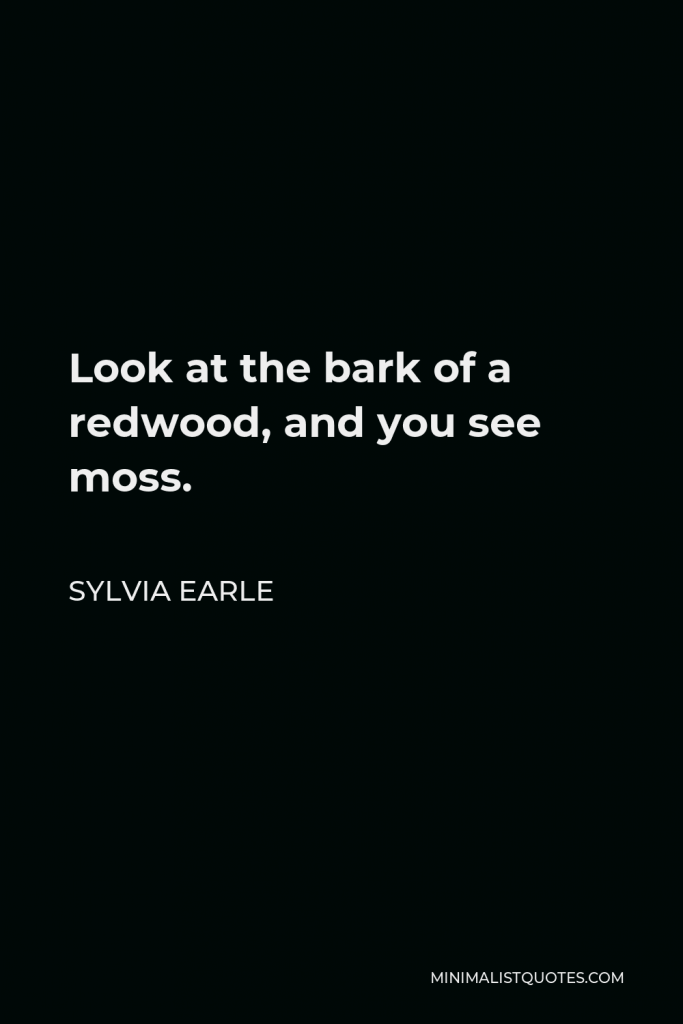

-





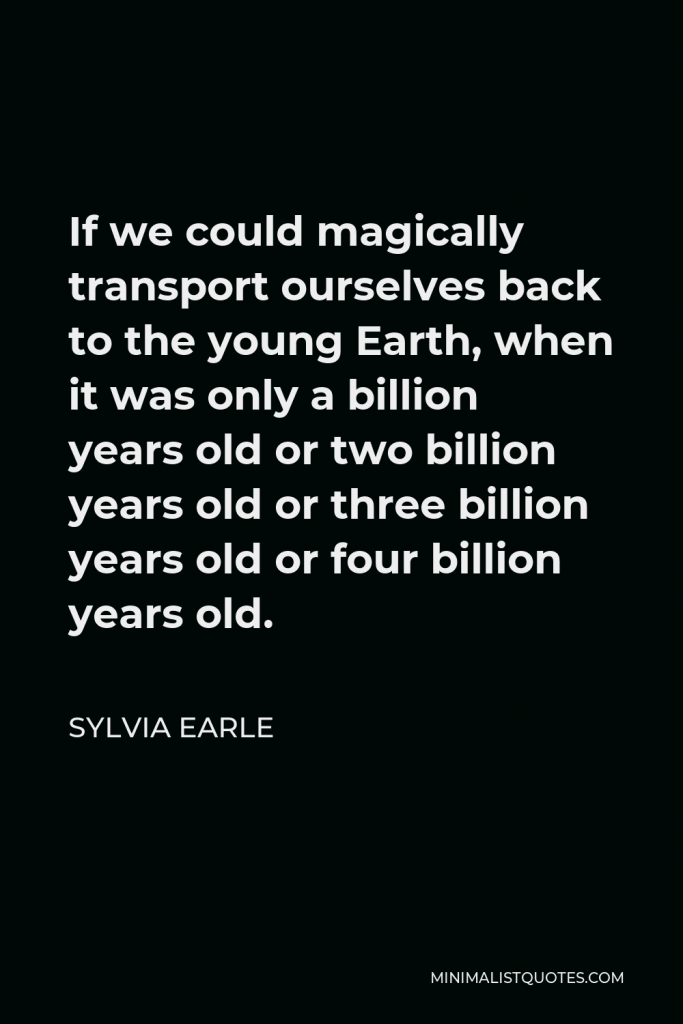

If we could magically transport ourselves back to the young Earth, when it was only a billion years old or two billion years old or three billion years old or four billion years old.
SYLVIA EARLE -





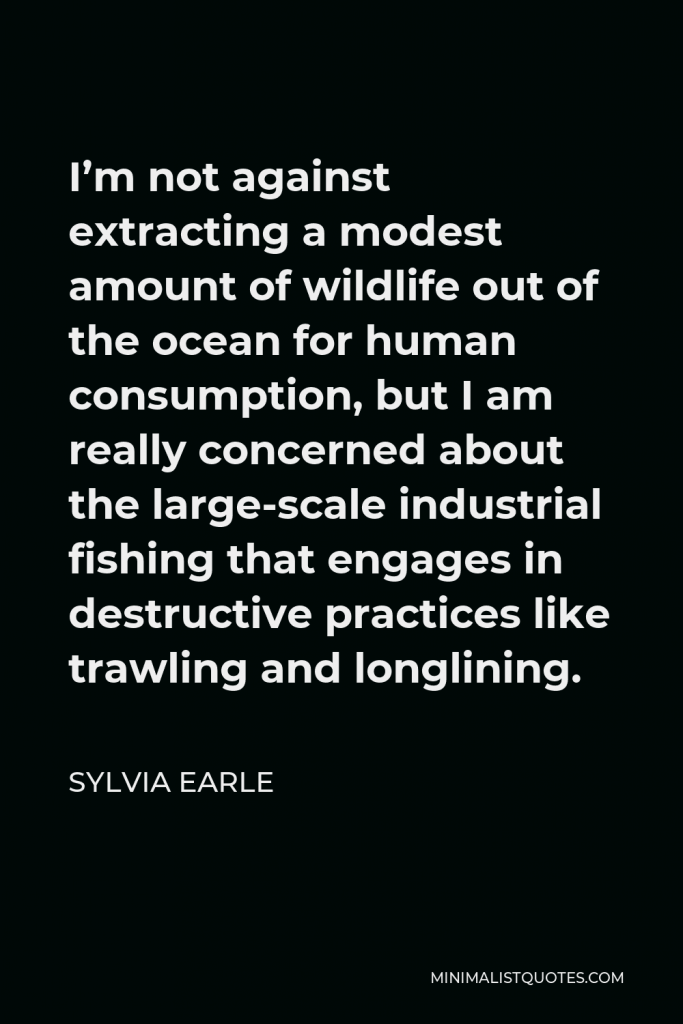

I’m not against extracting a modest amount of wildlife out of the ocean for human consumption, but I am really concerned about the large-scale industrial fishing that engages in destructive practices like trawling and longlining.
SYLVIA EARLE -





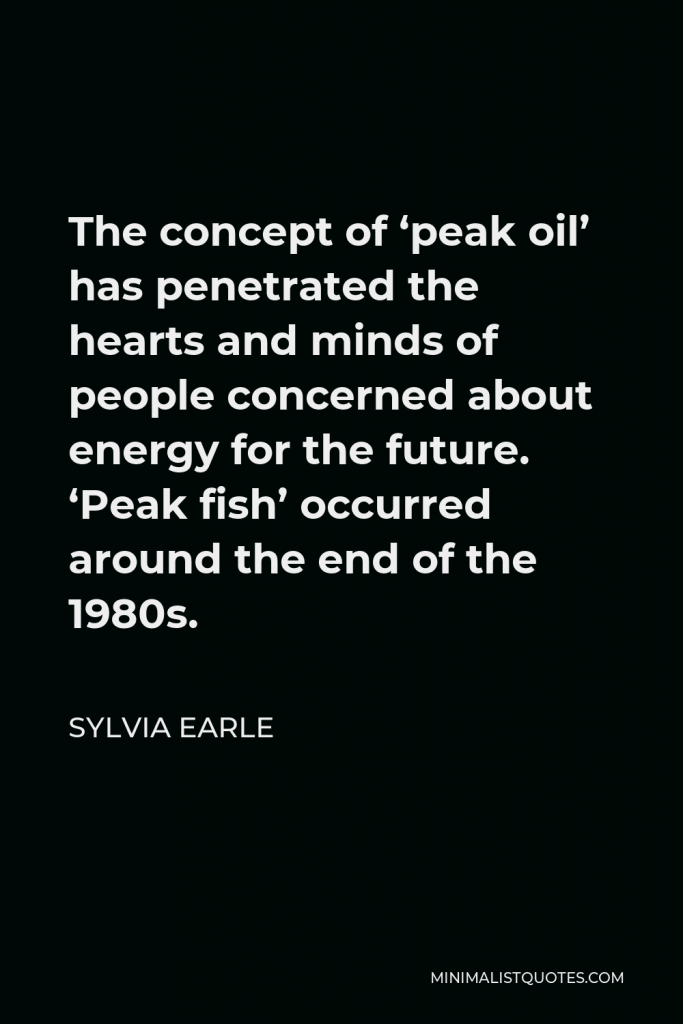

The concept of ‘peak oil’ has penetrated the hearts and minds of people concerned about energy for the future. ‘Peak fish’ occurred around the end of the 1980s.
SYLVIA EARLE -





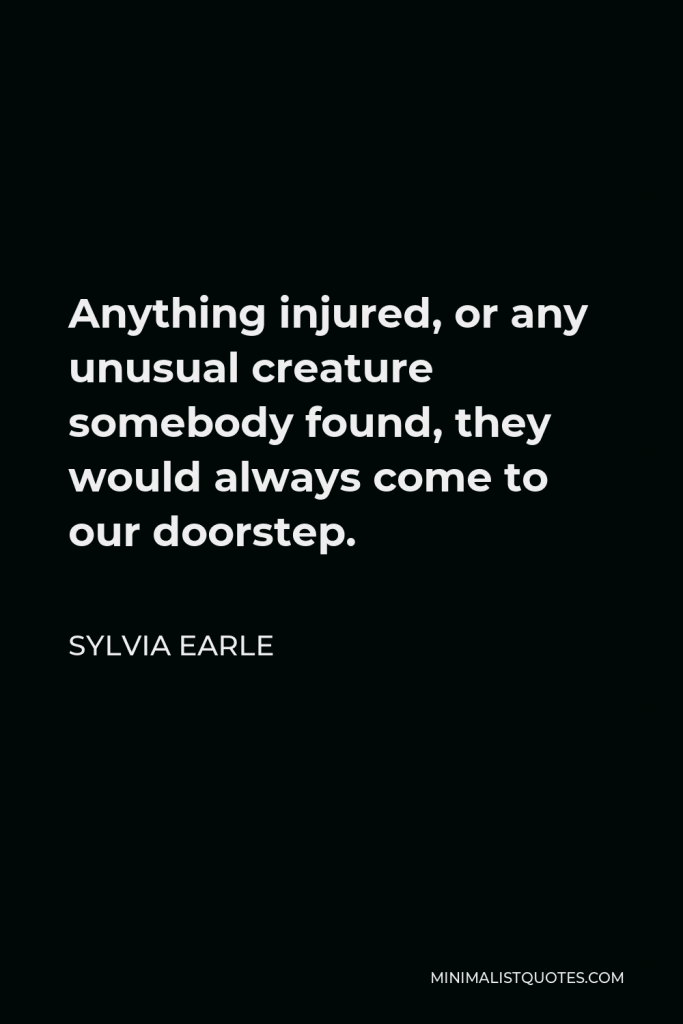

Anything injured, or any unusual creature somebody found, they would always come to our doorstep.
SYLVIA EARLE -





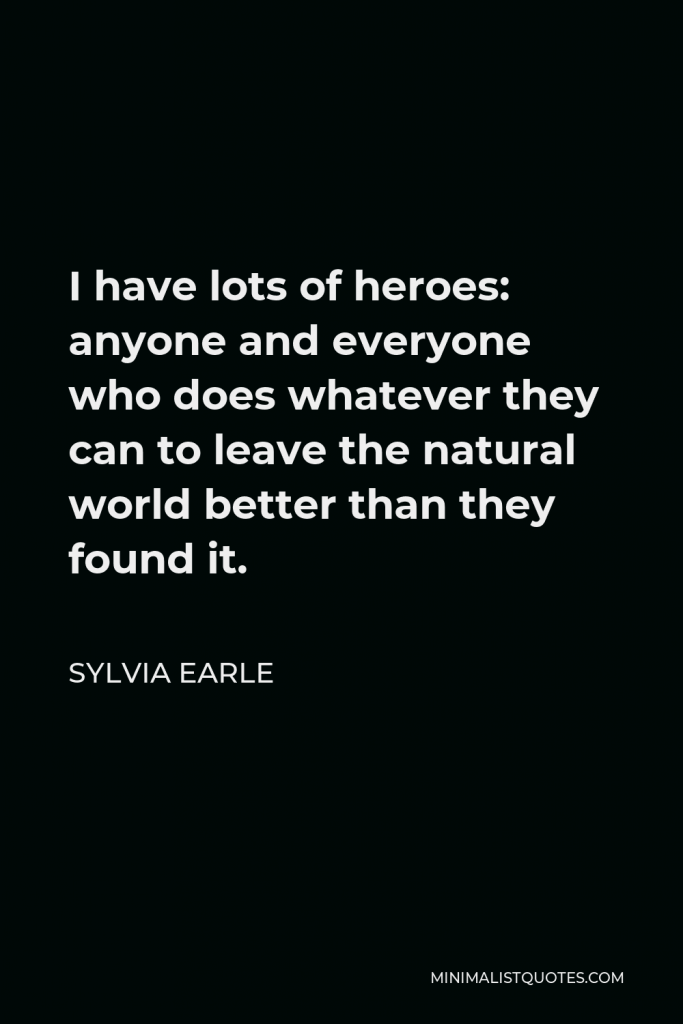

I have lots of heroes: anyone and everyone who does whatever they can to leave the natural world better than they found it.
SYLVIA EARLE -





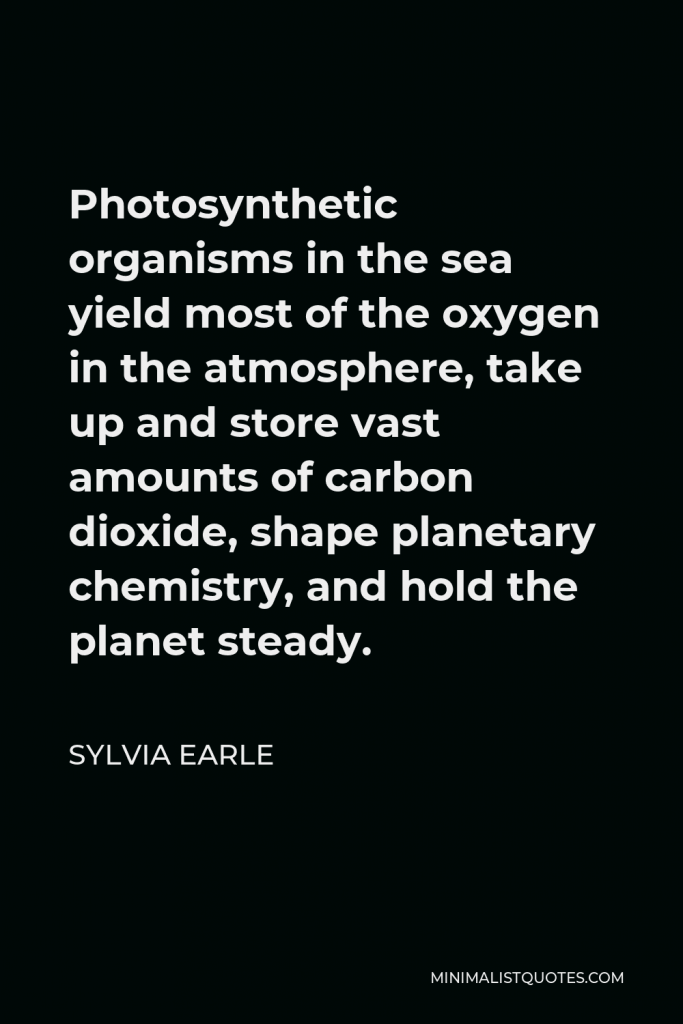

Photosynthetic organisms in the sea yield most of the oxygen in the atmosphere, take up and store vast amounts of carbon dioxide, shape planetary chemistry, and hold the planet steady.
SYLVIA EARLE -





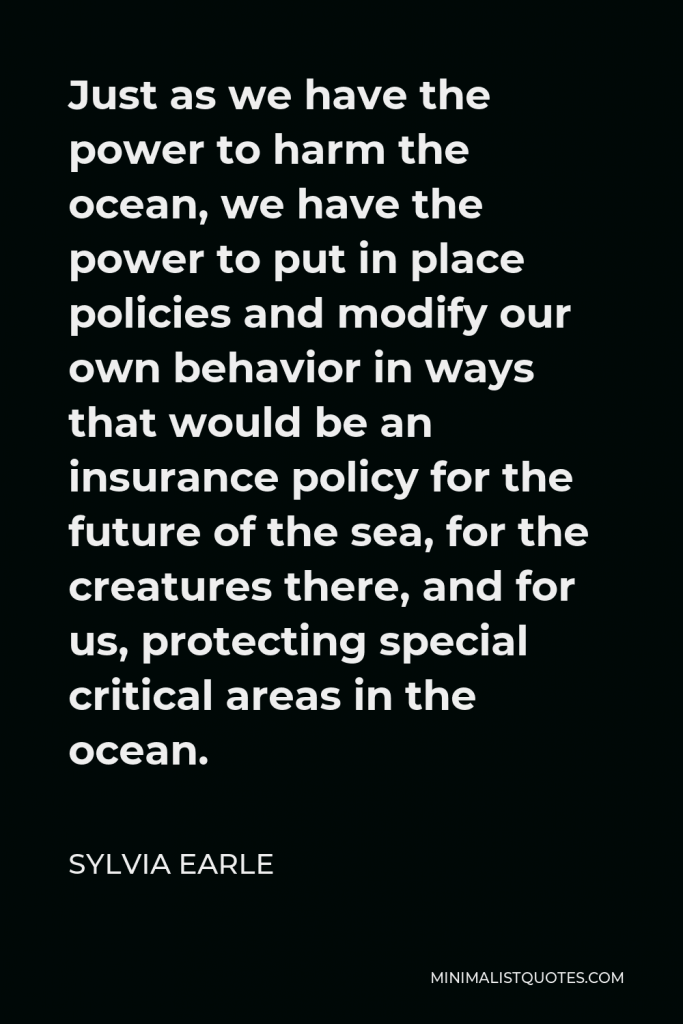

Just as we have the power to harm the ocean, we have the power to put in place policies and modify our own behavior in ways that would be an insurance policy for the future of the sea, for the creatures there, and for us, protecting special critical areas in the ocean.
SYLVIA EARLE -





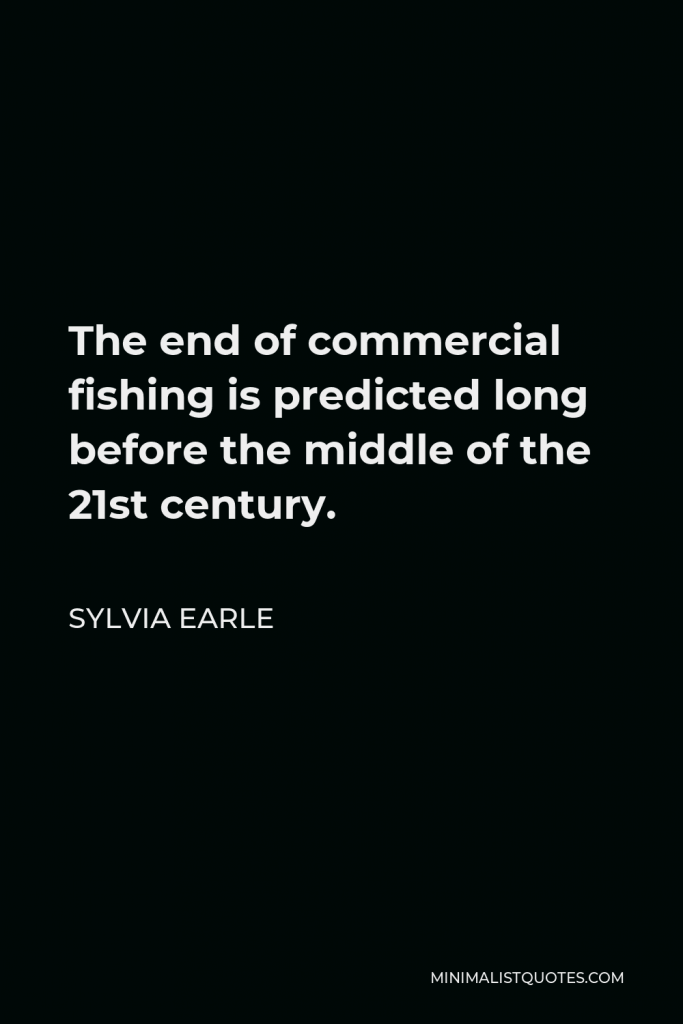

The end of commercial fishing is predicted long before the middle of the 21st century.
SYLVIA EARLE -





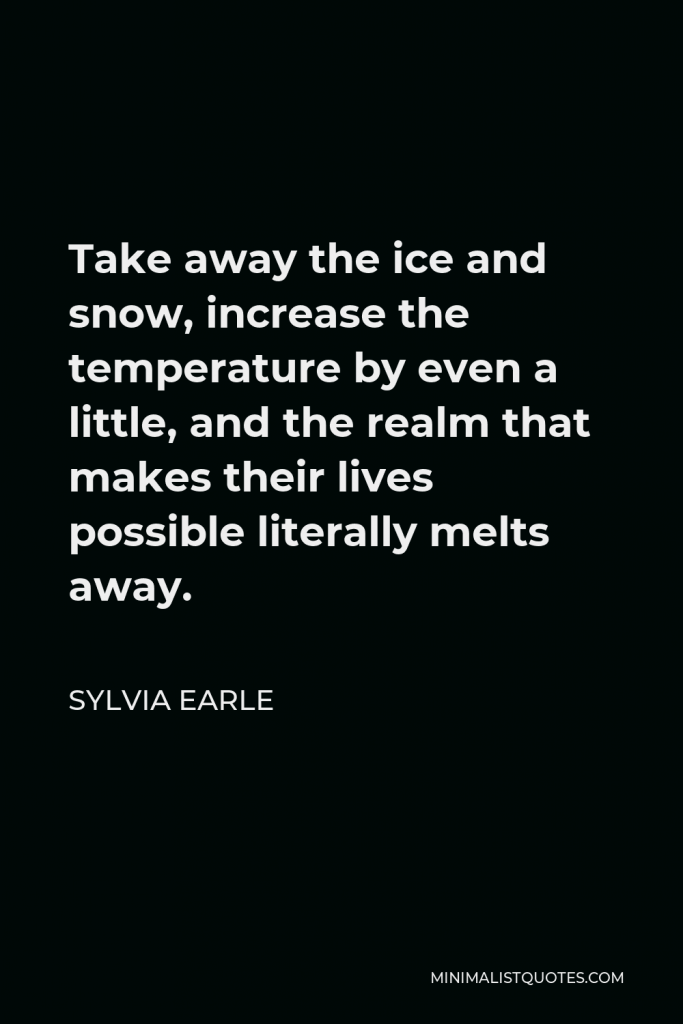

Take away the ice and snow, increase the temperature by even a little, and the realm that makes their lives possible literally melts away.
SYLVIA EARLE -







A lumberman will look at a forest and see so many board feet of lumber. I see a living city.
SYLVIA EARLE -





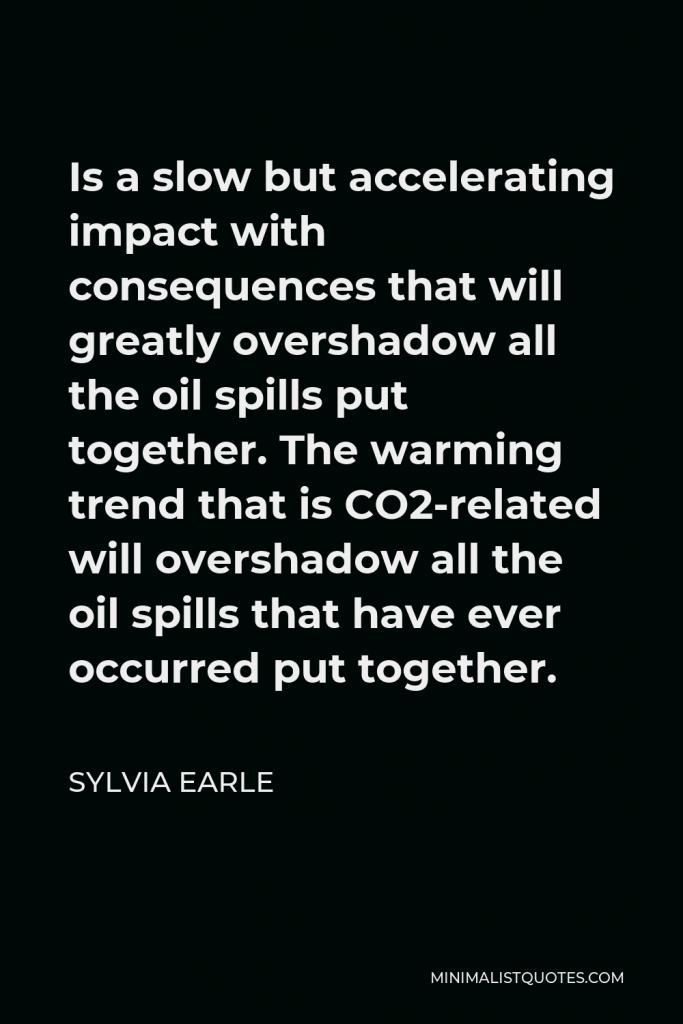

Is a slow but accelerating impact with consequences that will greatly overshadow all the oil spills put together. The warming trend that is CO2-related will overshadow all the oil spills that have ever occurred put together.
SYLVIA EARLE -





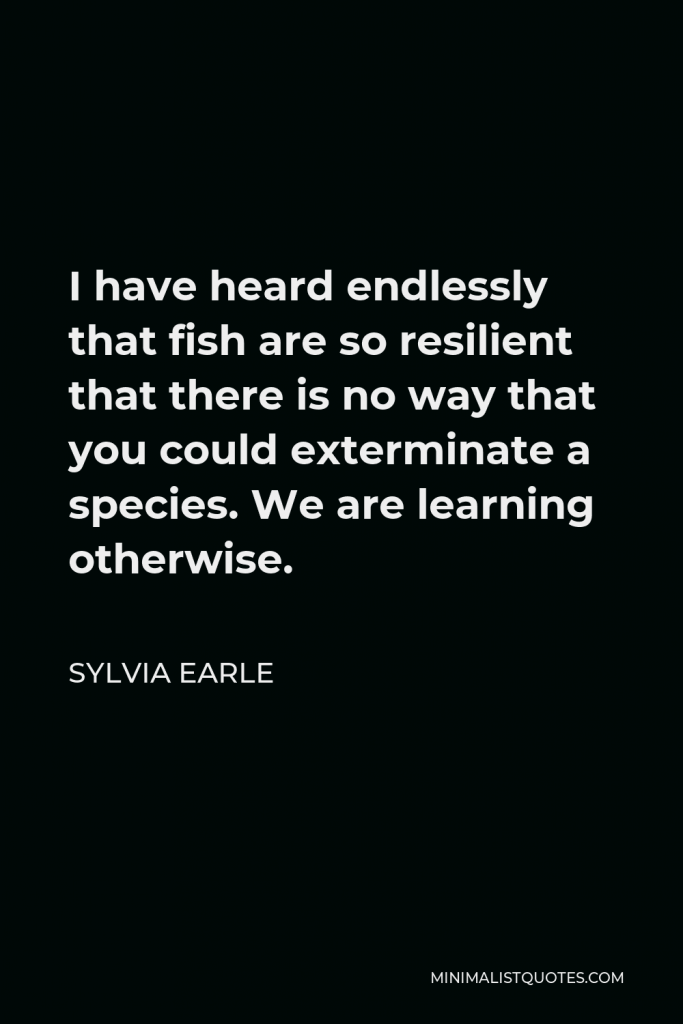

I have heard endlessly that fish are so resilient that there is no way that you could exterminate a species. We are learning otherwise.
SYLVIA EARLE -





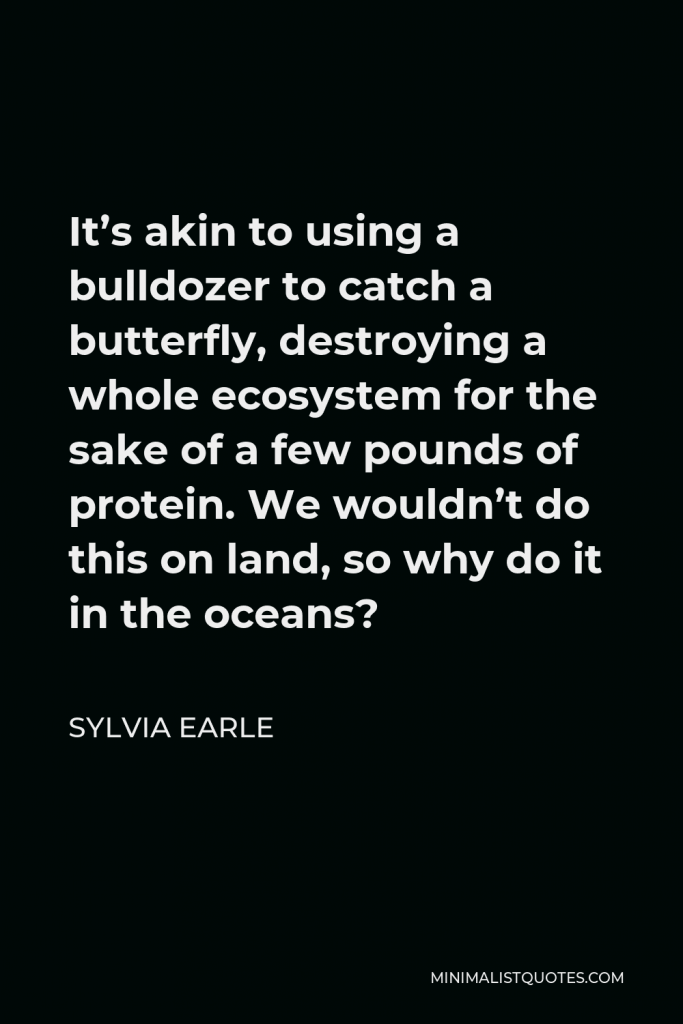

It’s akin to using a bulldozer to catch a butterfly, destroying a whole ecosystem for the sake of a few pounds of protein. We wouldn’t do this on land, so why do it in the oceans?
SYLVIA EARLE -





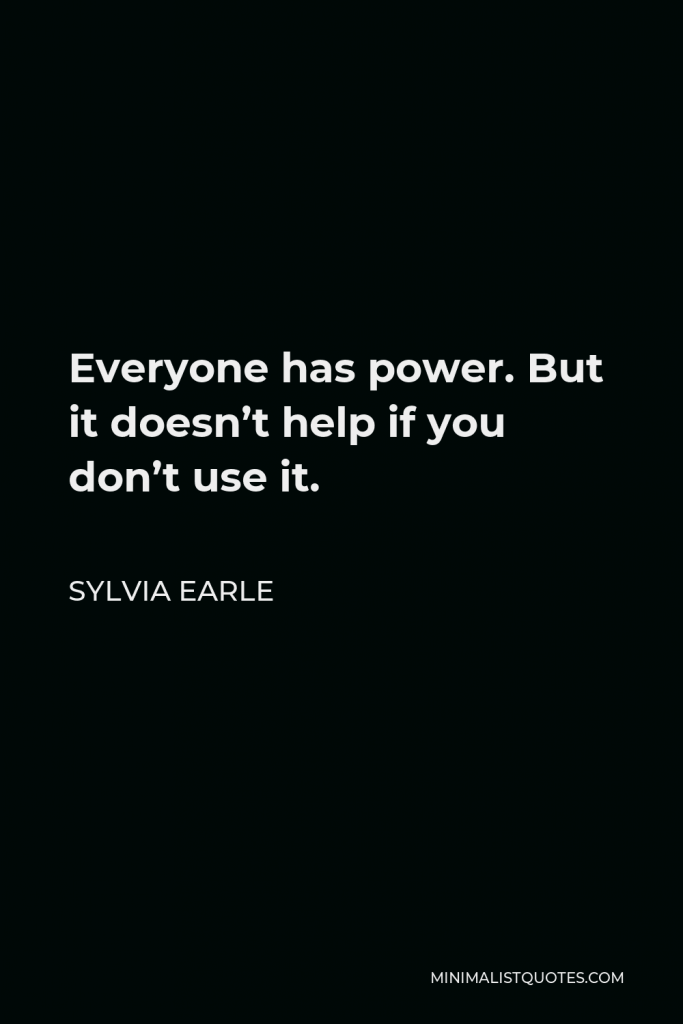

Everyone has power. But it doesn’t help if you don’t use it.
SYLVIA EARLE -





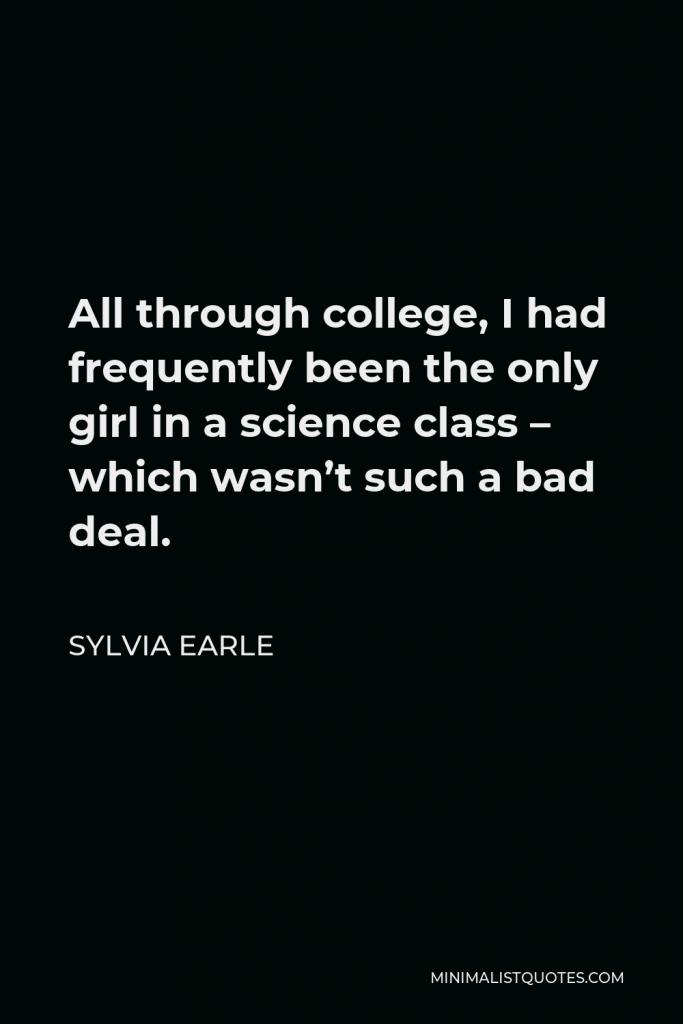

All through college, I had frequently been the only girl in a science class – which wasn’t such a bad deal.
SYLVIA EARLE
